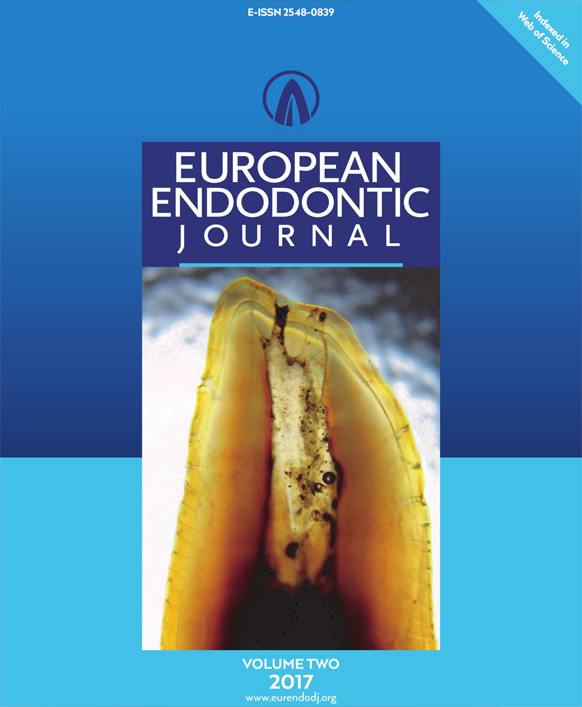
European Endodontic Journal
Yazarlar: Vesal Feiz Azimi, Iman Samadi, Anahita Saffarzadeh, Reza Motaghi, Nima Hatami, Arash Shahrava
Konular:-
DOI:10.14744/eej.2020.18189
Anahtar Kelimeler: Cone-beam computed tomography,Danger zone,Maxillary molars,Thickness of dentin
Özet: Differences in the morphology of the root canal system might result in favorable or adverse treatment outcomes. The present study compared the thickness of the dentinal wall in the danger zone (furcation area) of the first and second mesiobuccal canals in the maxillary first and second molars using cone beam computed tomography. Methods: In this cross-sectional study, 50 CBCT images of maxillary first and second molars were evaluated from one of the specialized radiology centers in Kerman, Iran. The images were prepared by a Planmeca Promax 3D Max machine (Planmeca, Helsinki, Finland), with a field of view (FOV) of 8×8 cm and a resolution of 0.1 mm and analyzed with Romexis Viewer software version 3.1.1 (Planmeca, Helsinki, Finland). In the 0.1-mm-thick axial cross-sections with a distance of 1 mm, the distances from the center of the MB1 and MB2 root canals to the furcation area were measured in three areas: A) furcation area, B) 2 mm below the furcation area, and C) 4 mm below the furcation area (at a magnification of ×10). The data were then analyzed with paired t-test. Results: The thickness of the dentinal wall in the MB2 root canal was significantly less than that in the MB1 root canal in all the specimens (P<0.05). In both maxillary first and second molars, the thicknesses of the MB1 and MB2 root canals were significantly different in the furcation area and 4 mm below the furcation area (P=0.001). There was no significant difference between the maxillary first and second molars 2 mm below the furcation area; however, the difference was marginal (P=0.07). Conclusion: Considering the low thickness of the dentinal wall in the MB2 root canal compared with the MB1 root canal in the maxillary first and second molars, the anti-curvature techniques away from the furcation should be used to prepare this root canal to reduce the risk of strip perforation. On the other hand, it might indicate that highly tapered instruments and other aggressive instruments, such as Gates-Glidden drills, should be used with caution in these root canals. (EEJ-2019-10-106)